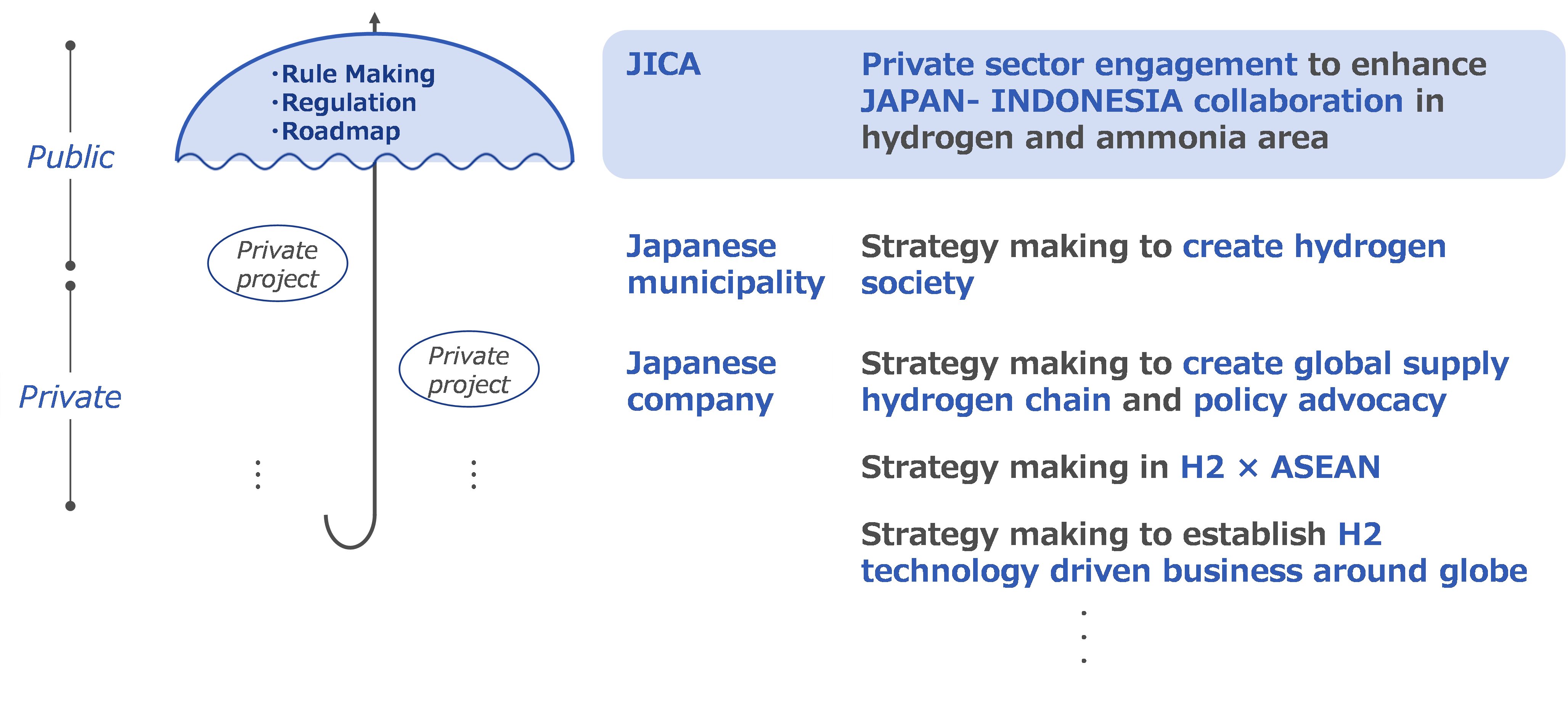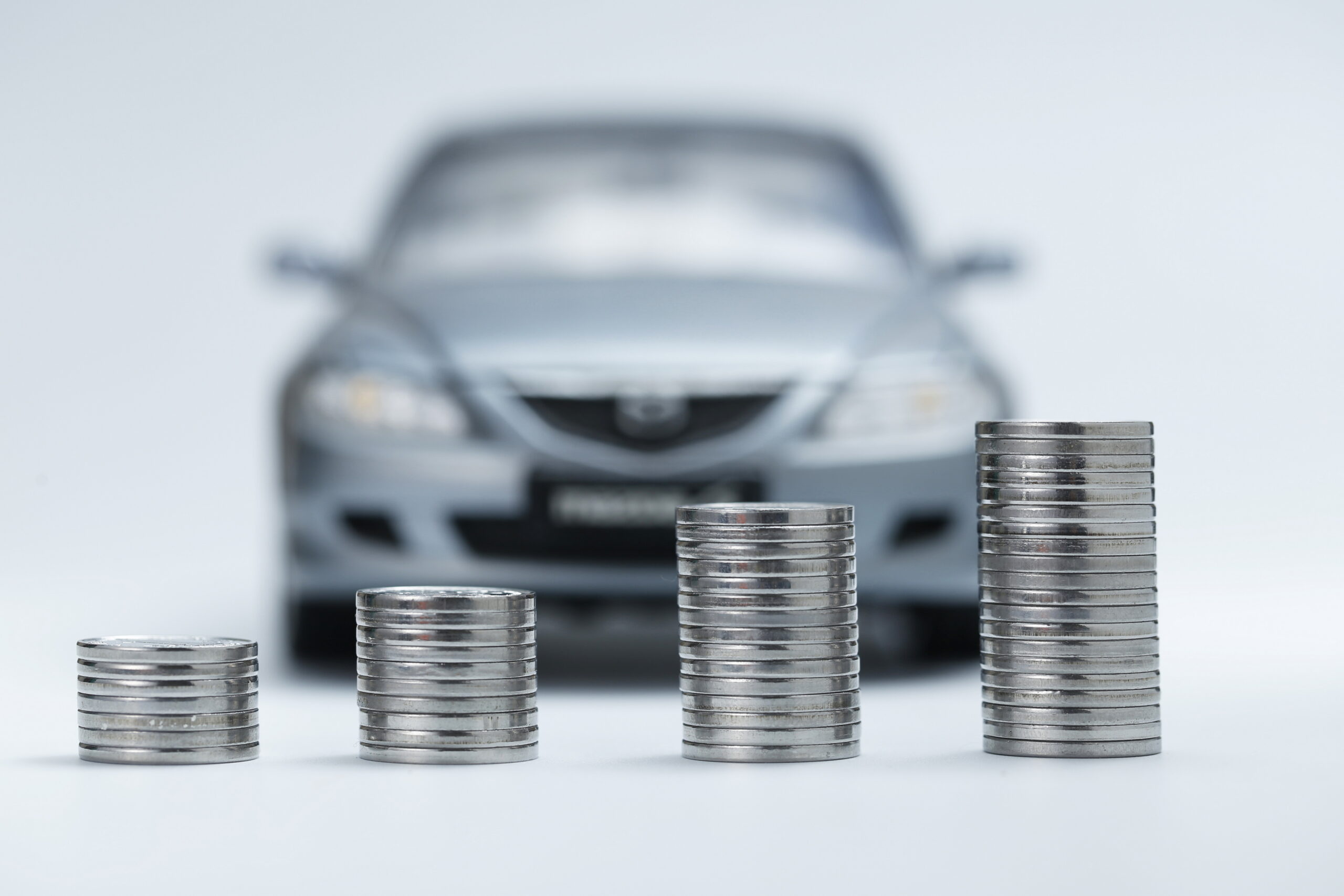
DI supported a global motorbike company in Southeast Asia
A global motorbike manufacturer observed a shift in consumer behavior as motorbike markets in Vietnam, Thailand, and Indonesia matured and became commoditized.
DI supported JICA in Indonesia
• Client: JICA
• Country: Indonesia
• Industry: Energy
Background:
In 2022, the IEA published An Energy Sector Roadmap to Net Zero Emissions in Indonesia. This strategy emphasizes the critical role of low-carbon and carbon-free energy sources, such as hydrogen and ammonia, in achieving carbon neutrality by 2060. It envisions that developing a hydrogen-based society in Indonesia will significantly contribute to the decarbonization of the global energy system.
To achieve net-zero emissions, aligning government policies with the strategies of both Indonesian and foreign companies was identified as crucial. Additionally, clarifying the necessary international collaborations to foster the growth of Indonesia’s domestic industry was deemed essential.
Against this backdrop, the Government of Japan, represented by JICA, partnered with DI to explore relevant support for both public and private sectors in creating a global hydrogen market. This initiative utilizes an “industry-producing” approach to foster market development by envisioning an ideal state, promoting rulemaking, and involving various stakeholders across the public and private sectors for hydrogen market creation in Indonesia.
Image: DI’s scope of work in the project

Support Overview:
This project aims to examine the role of Private Sector Engagement (PSE) in Indonesia’s emerging energy sector.
To achieve this, we began by analyzing existing initiatives in Indonesia to understand the overall landscape and identify barriers to industrialization. Our analysis focused on two key dimensions:
Next, we mapped the roles and efforts of key players within the sector. This involved analyzing their positioning, scale, targets, and strategies, as well as identifying the types of support required to address gaps.
We also conducted case studies to explore various public-private collaboration models. These included examples from Japan, past JICA projects, and initiatives by other international donors to understand effective approaches to partnership.
Building on these analyses, we interviewed public and private stakeholders in Japan and Indonesia. These discussions helped us:
Finally, we synthesized the findings to define an ideal state for Indonesia’s energy sector. By comparing this vision with the current state, we identified gaps and developed a proposal for collaboration between JICA and the private sector. This proposal outlines role divisions, actionable steps for JICA, and strategies to integrate private sector engagement into its initiatives.

A global motorbike manufacturer observed a shift in consumer behavior as motorbike markets in Vietnam, Thailand, and Indonesia matured and became commoditized.

A global shipping carrier, having solidified its presence across the logistics value chain, sought to expand its operations in Vietnam, Cambodia, and Myanmar.

A leading Japanese transportation company explored prospective business development and capital investment opportunities in Vietnam, targeting both B2B and B2C transportation segments. The B2B segment focused on traditional services for domestic manufacturing, distribution, and retail activities, while the B2C segment concentrated on the rapidly growing e-commerce market.

A client exploring the auto-lending market in Vietnam faced a significant challenge: the absence of a reliable credit rating system, which prolonged screening processes and increased the risk of ineffective decision-making. These inefficiencies created barriers to market growth and constrained the ability of lenders to extend loans confidently.
L7-11, 7th Floor, Vincom Center, 72 Le Thanh Ton Street, District 1, HCMC, Vietnam
info.vn@dreamincubator.com.vn
+84 28 3827 8450